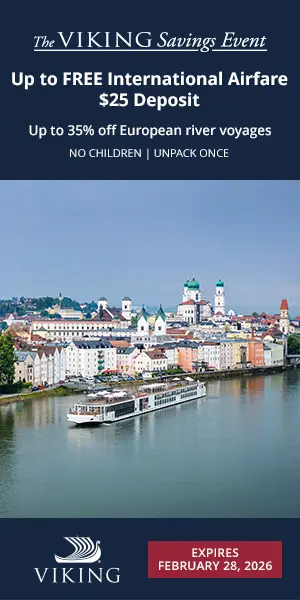Travelers Seek More Authentic Experiences; Agents And Tour Operators Rise To The Challenge
by Richard D’AmbrosioTuscany, Italy
The camera crew for The Travel Detective with Peter Greenberg follows a group of Trafalgar Tours travelers shopping in Sant’ Ambrogio, one of the oldest markets in Florence, for the ingredients they will use later that day to cook their own meal with Chef Libero Saraceni.
In another scene in another episode, Greenberg and a group meet and dine with a local Tuscan doctor and his wife at their 200-year-old private Chianti hillside estate. The two scenes are indicative of a sustained, profitable trend for travel professionals. “It’s about participatory travel in a local culture and much more than just seeing the expected sights,” said Greenberg, CBS News Travel Editor and The Royal Tour co-host.
Going “authentic”
More and more travelers are demanding an “authentic” travel experience, a trend that experts say plays into the hands of experienced, high-touch travel agents who can help consumers sift through the vast array of opportunities the world offers. According to a recent Expedia survey, 76% of baby boomers rate experiencing authentic local culture as “the most important” aspect of their decision making, while 62% of Generation X consumers rate local culture most important.
“There has been an ongoing evolution away from being a tourist, toward being more of a traveler,” said Gary Portuesi, managing director of New York City-based Authentic Italy, a boutique operator that caters specifically to this niche. Two years ago, as demand surged, Portuesi expanded his company’s tours to 20 regions.
Agents can capitalize on this trend, because most travelers, even Millennials used to searching the Internet for everything, look to “travel agents, travel providers, and expert opinion websites” for advice. According to Expedia, 61% of millennials and 59% of all adult travelers use these sources to make travel purchase decisions.
Four out of 10 (41%) U.S. Millennials told Expedia that “Industry Experts” are their most trusted source, followed by “Fellow Consumers” at 28%, and close contacts at 18%.
Authentic Italy trips include experiences like meeting the Urbani family, famous for exporting truffles worldwide. Authentic Italy guests can follow Urbani’s truffle dogs on hunts in the Umbrian countryside, attend a hands-on cooking class at Urbani’s Truffle Academy in Scheggino, dine at local farmhouses, and visit wineries where a sommelier guides them through the best wines to pair with white and black truffles.
To deliver such an authentic experience, companies need local expertise. Portuesi’s family has owned a home in Sicily for 30 years. He himself owns a second home there, a base of operations that allows him to develop close relationships with Italians throughout the country. “Business in Italy is conducted through personal relationships. A friend who owns a hotel will introduce me to their friend who runs a local market,” Portuesi said. “That friend will introduce me to a local restaurateur. And then I have the elements of a new, authentic experience.”
Paul Wiseman, president of Trafalgar Tours, agreed, adding that producing these kinds of experiences is very difficult to do. “You have to find and create each one.”
About seven years ago, Trafalgar started to realize that traveler choices were shifting toward more authentic cultural experiences. When they added an experience to a Southern Italy tour, it became the favorite part of the trip overnight, Wiseman said. Trafalgar now offers such experiences on more than 100 tours.




















